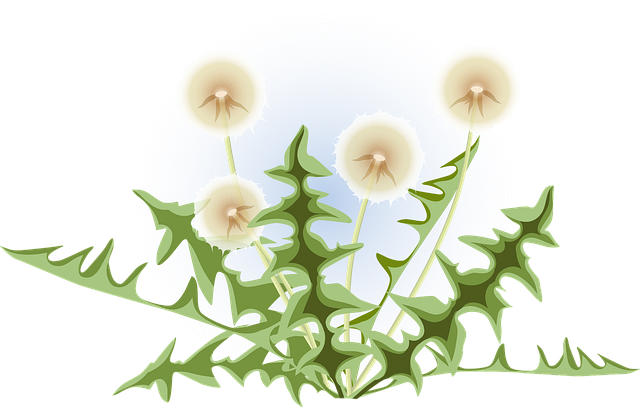The THCA flower, rich in therapeutic non-psychoactive cannabinoid THCA and distinctive terpene profiles, offers potential health benefits due to its complex aromatic compounds. Key terpenes like myrcene, caryophyllene, limonene, and humulene found in the THCA flower provide anti-inflammatory, sedative, anti-anxiety, gastrointestinal support, mood elevation, and antibacterial effects, among others. These terpenes work synergistically to enhance the flower's medicinal potential, making it a versatile choice for those exploring natural wellness solutions. Research is ongoing to further define how these terpene profiles contribute to THCA's therapeutic effects, highlighting its potential as a natural medicine alternative. Users can experience these benefits through various consumption methods, including vaporizing, smoothies, teas, or topical applications, with the recommendation to start with small doses and consult healthcare professionals before integrating it into a health regimen. THCA flower's integration into wellness practices is promising for those seeking natural alternatives for joint comfort, relaxation, and overall health support.
Explore the burgeoning realm of wellness with the THCA flower, a natural wonder that’s capturing attention for its therapeutic benefits. This article delves into the unique terpene profiles of THCA flower and sheds light on the science underpinning its potential contributions to health and well-being. We’ll dissect the composition of its terpenes, offering insights into their individual advantages. Moreover, learn how to seamlessly integrate this beneficial botanical into your daily lifestyle with practical usage and application tips. Join us as we unravel the benefits of THCA flower, a true natural ally for those seeking to enhance their wellness journey.
- Unveiling the Therapeutic Potential of THCA Flower: A Deep Dive into Its Terpene Profiles
- The Science Behind THCA Flower and Its Role in Health and Well-being
- Analyzing the Composition of Terpenes in THCA Flower and Their Individual Benefits
- Integrating THCA Flower into Your Lifestyle for Optimal Health: Usage and Application Tips
Unveiling the Therapeutic Potential of THCA Flower: A Deep Dive into Its Terpene Profiles

The THCA flower, a non-psychoactive form of cannabis, has garnered significant attention for its potential therapeutic benefits, which stem from its unique chemical composition. At the heart of this composition are the terpene profiles found within the flower. These terpenes not only contribute to the distinctive aromas and flavors but also play a pivotal role in modulating the effects of cannabinoids like THCA (Tetrahydrocannabinolic Acid). Research into the terpene profiles of THCA flowers has revealed a diverse array of compounds such as myrcene, caryophyllene, limonene, and pinene, each with its own therapeutic properties. Myrcene, for instance, is known for its anti-inflammatory and sedative effects, which may make it beneficial for individuals seeking relief from pain and insomnia. Caryophyllene offers a unique advantage as a terpene that can interact with the body’s endocannabinoid system independently of cannabinoid receptors, providing gastrointestinal and anti-anxiety benefits. The synergistic effect of these terpenes in conjunction with THCA may enhance the medicinal properties of the flower, making it a subject of interest for those exploring natural alternatives for health and wellness. As scientific research continues to dissect and understand the intricate dance between cannabinoids and terpenes, the therapeutic potential of THCA flowers becomes increasingly clear, offering a promising avenue for natural medicine.
The Science Behind THCA Flower and Its Role in Health and Well-being

Delta-9 tetrahydrocannabinol (THC) is well-known for its psychoactive properties, but its precursor, tetrahydrocannabinolic acid (THCA), has garnered attention for its potential health benefits. THCA, found abundantly in raw cannabis flowers and certain hemp varieties, exists in a potent form that, when decarboxylated, converts into THC. The therapeutic efficacy of THCA is thought to stem from its interaction with the body’s endocannabinoid system, which plays a pivotal role in regulating various physiological processes. Research has indicated that THCA may exert neuroprotective effects and exhibit anti-inflammatory properties, without the psychoactive side effects associated with THC.
The therapeutic potential of THCA is further amplified by its unique terpene profiles. These aromatic compounds, which give cannabis its distinct flavors and smells, work synergistically with THCA to enhance its beneficial properties. For instance, the terpene myrcene is known for its anti-inflammatory benefits and may increase the permeability of cell membranes, potentially improving the absorption of cannabinoids. Another significant terpene, beta-caryophyllene, shares a similar action with cannabinoid receptors as THC, offering gastroprotective and anti-anxiety effects. The synergy between THCA and its complementary terpene profile not only optimizes the compound’s health benefits but also offers a holistic approach to wellness, making THCA flower a subject of growing interest in the natural health community.
Analyzing the Composition of Terpenes in THCA Flower and Their Individual Benefits

THCA flower, rich in tetrahydrocannabinolic acid (THCA), possesses a unique terpene profile that contributes to its therapeutic potential. These terpenes are aromatic compounds found in various plants and play a significant role in the flavor, scent, and effects of the plant material. Analytical studies have revealed that THCA flower contains a diverse array of terpenes, including myrcene, caryophyllene, limonene, and humulene, among others. Myrcene, for instance, is known for its sedative and anti-inflammatory properties, often used to promote relaxation and alleviate pain. Caryophyllene exhibits a distinctive spicy aroma and has been studied for its anti-anxiety and gastroprotective effects. Limonene, with its citrusy fragrance, is associated with mood enhancement and may offer gastrointestinal benefits. Humulene contributes to the earthy note of the THCA flower and has been researched for its antibacterial properties. Each terpene within the THCA flower terpene profiles offers distinct therapeutic advantages, making it a subject of interest for those exploring natural remedies and wellness strategies. The synergy between these compounds enhances the entourage effect, potentially amplifying the beneficial effects when consumed as part of the whole-plant extract. Understanding the individual contributions of each terpene within the THCA flower’s composition is crucial for optimizing its therapeutic potential and tailoring its use to specific wellness goals.
Integrating THCA Flower into Your Lifestyle for Optimal Health: Usage and Application Tips

Incorporating THCA (Tetrahydrocannabinolic Acid) flower into your daily routine can be a beneficial addition to your wellness regimen, thanks to its unique terpene profiles and potential health advantages. THCA is the raw, non-psychoactive form of THC found in hemp and cannabis plants, and it’s been gaining attention for its therapeutic properties. To harness the benefits of THCA flower, consider incorporating it into various aspects of your lifestyle. For instance, vaporizing THCA flower allows for precise dosing and quick effects, utilizing the plant’s rich terpene profiles to enhance efficacy. These compounds not only contribute to the unique flavors and aromas but also play a synergistic role in the flower’s potential health benefits, such as supporting joint comfort or promoting a sense of calm. When integrating THCA flower into your routine, it’s important to understand that each individual may respond differently based on their unique endocannabinoid system and health needs.
For those looking to maintain an active lifestyle, THCA flower can be a versatile tool. It can be added to smoothies or teas for a subtle and healthy approach, while still leveraging the therapeutic terpene profiles. Alternatively, topical applications of THCA-rich products can be applied directly to areas of discomfort, offering localized relief. Regardless of the method chosen, it’s crucial to start with small amounts to gauge your body’s response and adjust usage accordingly. Consistency is key when exploring the potential health benefits of THCA flower; maintaining a steady routine can provide the most noticeable effects, as part of a holistic approach to health and well-being. Always consult with a healthcare professional before making any changes to your health regimen, especially if you have existing health concerns or are taking other medications.
THCA flower, rich in unique terpene profiles, has emerged as a promising subject of study within the realm of health and wellness. The comprehensive analysis presented in this article underscores the potential therapeutic benefits of these compounds, providing valuable insights into their individual contributions to overall health. By incorporating THCA flower into one’s lifestyle with careful consideration, individuals may harness its advantages. As research continues to evolve, the understanding of THCA flower’s role in health and well-being is expected to grow, further highlighting its significance in natural remedies and complementary health practices. With a focus on its terpene profiles, the potential of THCA flower as a beneficial addition to one’s wellness regimen becomes clear, offering a compelling perspective for those interested in holistic health solutions.


